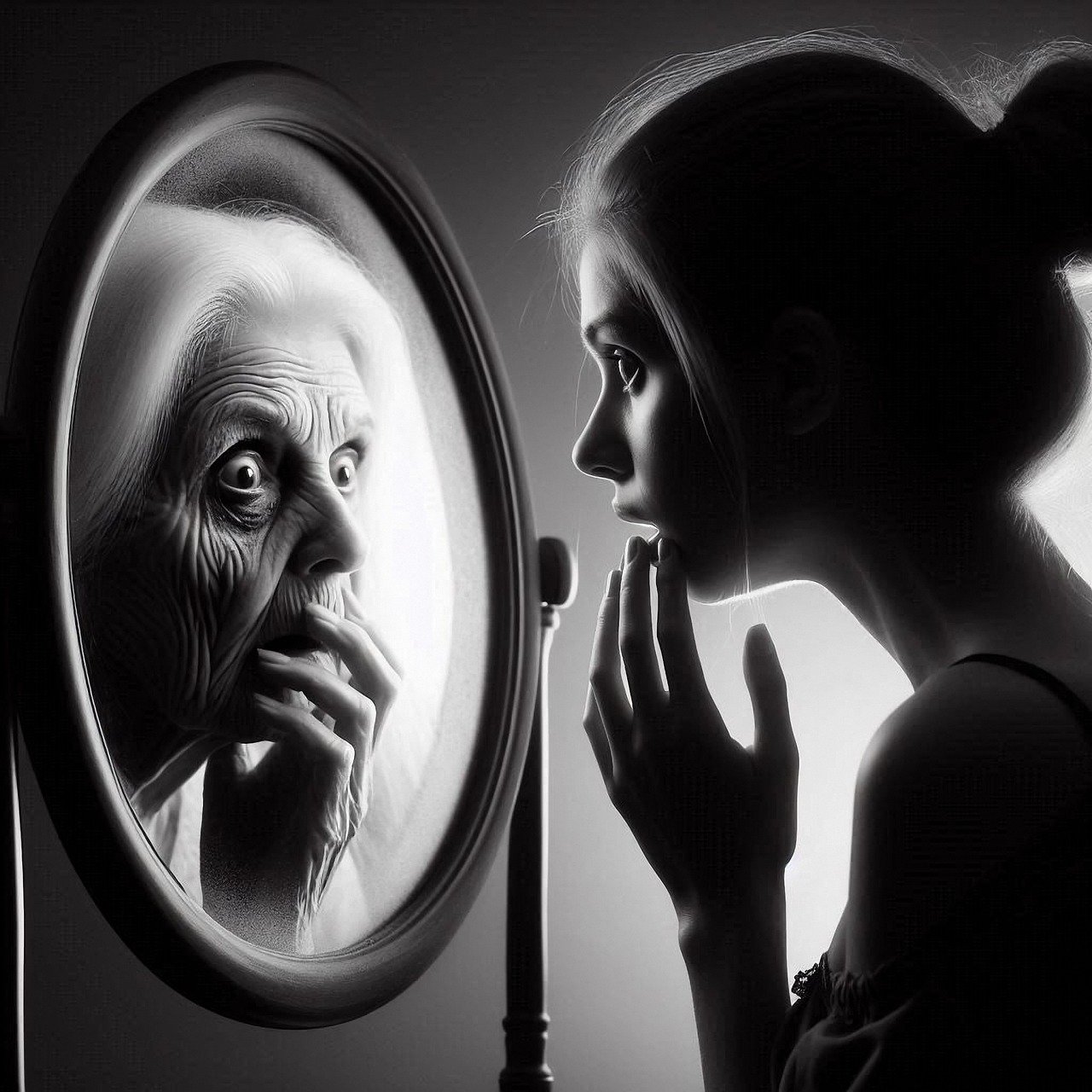Early aging refers to the appearance of signs of aging at a younger age than is typically expected. While aging is a natural process, some people may experience physical, mental, or emotional signs of aging earlier than others, often in their 30s or 40s.
Common Characteristics of Early Aging:
- Skin Changes: Development of wrinkles, fine lines, sagging skin, and age spots.
- Hair Changes: Premature graying or thinning hair.
- Body Changes: Weight gain, loss of muscle tone, or decreased energy levels.
- Joint and Bone Health: Increased stiffness, joint pain, or signs of osteoporosis.
- Cognitive Changes: Memory issues, difficulty concentrating, or increased forgetfulness.
- Hormonal Changes: Symptoms related to hormonal fluctuations, such as irregular menstrual cycles or mood swings.
- Overall Health: Increased susceptibility to health issues like cardiovascular problems or diabetes.
Causes of Early Aging:
- Genetics: Family history can play a significant role.
- Lifestyle Factors: Unhealthy eating, insufficient physical activity, smoking, and excessive alcohol intake.
- Sun Exposure: UV rays can accelerate skin aging.
- Stress: Chronic stress can have various negative effects on health.
- Environmental Factors: Pollution and toxins can contribute to early aging.
Managing lifestyle choices, such as maintaining a balanced diet, staying active, and practicing good skincare, can help slow the signs of aging.
What Are Signs Of Early Aging?
Signs of aging can vary from person to person, but some common signs that women might notice at an earlier age include:
- Skin Changes: Thinner skin, wrinkles, fine lines, and loss of elasticity can become apparent. Age spots or hyperpigmentation may also develop.
- Hair Changes: Graying hair or thinning hair can occur. Some women may experience changes in texture as well.
- Weight Changes: Metabolism can slow down, leading to weight gain or difficulty losing weight.
- Joint Pain: Increased stiffness or discomfort in joints can start earlier due to factors like genetics or lifestyle.
- Hormonal Changes: Early signs of hormonal shifts, such as irregular periods or symptoms of perimenopause, can appear in the late 30s or early 40s.
- Fatigue: Chronic fatigue or lower energy levels can become more noticeable.
- Memory and Cognitive Changes: Some may experience difficulty concentrating or occasional memory lapses.
- Decreased Bone Density: Osteoporosis or decreased bone density can start in some women as they approach their 30s or 40s.
- Vision Changes: Problems with near vision, often called presbyopia, can begin in the early 40s.
- Changes in Mood: Increased anxiety or mood swings can occur due to hormonal changes or life stressors.
Lifestyle factors, genetics, and environmental influences can all play a role in the rate at which these signs appear. Regular health check-ups and a healthy lifestyle can help mitigate some of these effects.
How To Prevent Early Aging?
Preventing early aging involves a combination of healthy lifestyle choices and good self-care practices. Here are some effective strategies:
1. Skincare Routine:
- Sun Protection: Use broad-spectrum sunscreen daily to protect against UV rays.
- Moisturize: Keep skin hydrated with moisturizers tailored to your skin type.
- Antioxidants: Incorporate products with antioxidants (like vitamins C and E) to combat oxidative stress.
- Gentle Cleansing: Use gentle cleansers to avoid stripping natural oils.
2. Healthy Diet:
- Balanced Nutrition: Eat plenty of fruits, vegetables, whole grains, lean proteins, and healthy fats.
- Hydration: Stay hydrated by drinking plenty of water to support skin health and overall well-being.
- Limit Sugar and Processed Foods: Reduce intake of sugar and processed foods, which can contribute to aging.
3. Regular Exercise:
- Engage in a mix of cardiovascular, strength, and flexibility exercises to maintain physical health, manage weight, and boost mood.
4. Stress Management:
- Incorporate stress-relief techniques like yoga, meditation, or deep breathing exercises
- Participate in hobbies and activities that make you happy.
5. Adequate Sleep:
- Aim for 7-9 hours of quality sleep each night to support overall health and skin repair.
6. Avoid Harmful Habits:
- No Smoking: Avoid tobacco products, which can accelerate skin aging and impact overall health.
- Limit Alcohol: Drink in moderation, as excessive alcohol can dehydrate the skin and lead to premature aging.
7. Regular Health Check-Ups:
- Keep up with medical check-ups to catch any potential health issues early.
8. Stay Mentally Active:
- Engage in activities that challenge your brain, such as puzzles, reading, or learning new skills.
9. Maintain Social Connections:
- Foster relationships and maintain a strong social network, which can improve mental health and longevity.
By incorporating these strategies into your daily routine, you can help slow down the signs of aging and maintain your overall well-being.


